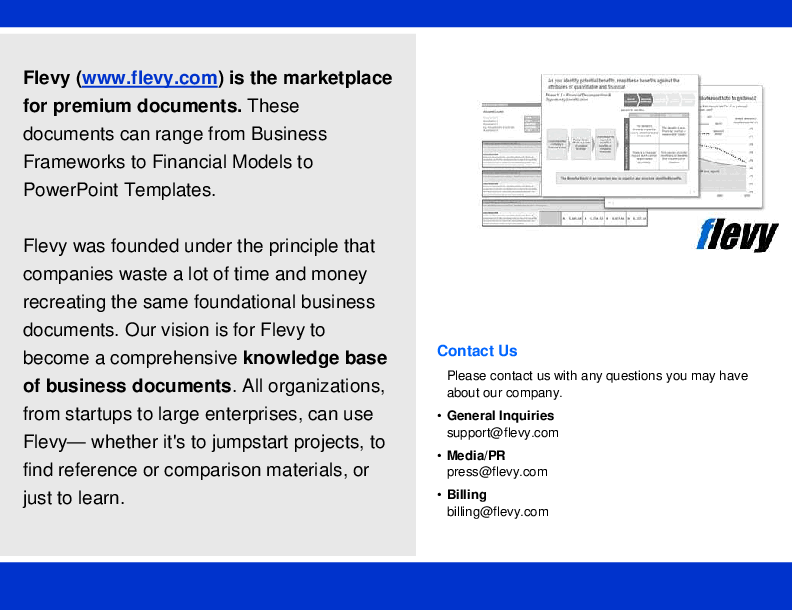Shopping Mall Financial Model (Excel XLSX)
Excel (XLSX)
BENEFITS OF THIS EXCEL DOCUMENT
- The model generates the three financial statements, a summary page, a valuation as well as graphs.
- The financing options for the project include a standard long term loan, as well as an overdraft facility and of course equity funding from investors.
- Shopping Mall Financial Model presents the case of an investment into a shopping mall and its operation.
REAL ESTATE EXCEL DESCRIPTION
Shopping Mall Financial Model presents the case of an investment into a shopping mall and its operation. The model generates the three financial statements, a summary page, a valuation as well as graphs. The financing options for the project include a standard long term loan, as well as an overdraft facility and of course equity funding from investors.
So a quick overview of the model, in the contents tab you can see the structure of the model and by clicking on any of the headlines to be redirected to the relevant worksheet.
On the manual tab you are able to feed the general information for the model such as: project name & title, responsible, timeline of the model and date and currency conventions.
Additionally there is a description of the color coding of the model in the same tab. Inputs are always depicted with a yellow fill and blue letters, call up (that is direct links from other cells) are filled in light blue with blue letters while calculations are depicted with white fill and black characters.
There is also a color coding for the various tabs of the model. Yellow tabs are mostly assumptions tabs, grey tabs are calculations tabs, blue tabs are outputs tabs (that is effectively results or graphs) and finally light blue tabs are admin tabs (for example: the cover page, contents and checks).
Moving on to the Inputs: in this tab, the user needs to adjust the business drivers in the yellow cells. The drivers consist of the gross lease area, the rental rate, the occupancy rate, the footfall and the spend per head, the events revenues as well as the parking revenues. The costs to support the drivers of the business are split into recoverable and non recoverable expenses. The non recoverable expenses are further split between fixed and variable expenses. Other drivers include receivables days, payable days, inventory days and income tax. Additional assumptions include: depreciation period in years (for both existing and new assets), construction schedule for the investment in terms of percentage completion and investment amounts per cost type, debt gearing, interest on cash and loans (term loan, overdraft, VAT facility), and cost of equity.
Calculations: this is were all calculations are performed. The revenues are calculated based on the previous inputs and the growth rates and by deducting the operating costs, the operating profit is resulting. Based on the assets financed and the gearing of the financing the interest and depreciation are occurring. By using the working capital assumptions the impact of the business cycle is presented. Finally depending on the existing debt financing and forecast assumptions the loan balances are calculated (Term loan, overdraft).
In the Outputs tab: everything is aggregated here into the relevant statements: profit and loss, balance sheet and cash flow on a yearly basis.
In the summary tab you are able to see a high level report with the main financial & business ratios. It can be readily printed on one page for your convenience.
Moving to the Investment Metrics tab, a free cash flow to the firm valuation is performed leading to an enterprise value. There is also a calculation of the Net Present Value from an investor"s perspective, as well as Internal Rate of Return, Payback and Discounted Payback Period. Additionally various KPIs are calculated along the debt service coverage ratio, and the loan life coverage ratio.
In the Graphs tab: Various graphs present the investment costs, revenues and operating expenses, and bank ratios, various financials from the income statement, balance sheet and cash flow, valuation as well as payback period and discount rates.
Checks: A dedicated worksheet that makes sure that everything is working as it should!
Important Notice: Yellow indicates inputs and assumptions that the user is able to change, blue cells are used for called up cells, and white cells with black characters indicates calculation cells.
Got a question about the product? Email us at support@flevy.com or ask the author directly by using the "Ask the Author a Question" form. If you cannot view the preview above this document description, go here to view the large preview instead.
Source: Best Practices in Real Estate, Integrated Financial Model Excel: Shopping Mall Financial Model Excel (XLSX) Spreadsheet, Big4WallStreet









